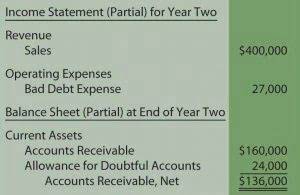
Any time your income goes up, your tax liability will likely go up too. And If you get laid off from your job and stay unemployed the rest of the year, you may have too much tax withheld for the year while you were working. When you have too much money withheld from your paychecks, you end up giving the government an interest-free loan and getting a tax refund. On the other hand, having too little withheld from your paychecks could mean an unexpected tax bill or even a penalty for underpayment. “Given the difficulties of dealing with the IRS, this is not a good time to throw away any tax-related paperwork,” says Dan Herron, a CPA and financial planner in San Luis Obispo, Calif.
If you have at least 15 employees, anti-discrimination laws require you to keep employment records for one year from the date the record was made or personnel action was taken. This includes job applications and anything else related to hiring, rehiring, promotions, transfers, employment tests, demotions, layoffs, or selection of personnel for training. The Family and Medical Leave Act requires certain records to be kept for three years.
Specific Documents
There are a number of reasons why a business may cancel a check. Maybe you mistakenly ordered something you no longer need or overpaid. So to be on the safe side, keep all these records for at least seven years.

Shredding documents is the main way to protect yourself from identity theft. As a general rule, there are certain documents that absolutely should be shred. This includes anything that has account numbers, birth dates, maiden names, passwords and PINs, signatures, and Social Security numbers. Getting rid of your paper filing by setting up an electronic filing system will save you space and rid you of paper clutter.
Nav’s Verdict: Keeping Business Records
After even just a decade, that stack would likely be outrageously big. There are many types of documents—mostly financial—that you should keep for a certain period of time, but don’t need to store forever. You may need to reference them monthly or weekly for a while, then they just become another piece of paper lying around creating clutter.
See Tips for taxpayers who need to file an amended tax return and go to IRS.gov/Form1040X for information and updates. Although the tax preparer always signs the return, you’re ultimately responsible for providing all the information required for the preparer to accurately prepare your return. Anyone paid to prepare tax returns for others should have a thorough understanding of tax matters. For more information on how to choose a tax preparer, go to Tips for Choosing a Tax Preparer on IRS.gov. He enters the total of other annual business expenses on the “Other expenses” line of Schedule C. This annual summary of monthly cash receipts and expense totals provides the final amounts to enter on Henry’s tax return.
Are the records connected to property?
A necessary expense is one that is helpful and appropriate for your business, trade, or profession. An expense does not have to be indispensable to be considered necessary. Except in a few cases, the law does not require any special kind of records. However, the business you are in affects the type of records you need how long to keep business documents to keep for federal tax purposes. If you set up an online tax account with the IRS you will be obtain your tax documents without having to contact the IRS. This feature allows you to log into an account and check payment balances, set up payment arrangements and view prior-year tax returns and reported tax forms.

Under this system, the total debits must equal the total credits after you post the journal entries to the ledger accounts. If the amounts do not balance, you have made an error and you must find and correct it. In the double-entry system, each account has a left side for debits and a right side for credits. It is self-balancing because you record every transaction as a debit entry in one account and as a credit entry in another.
Leases and insurance policies can be used to help your negotiating position when it comes time to renew, and you will want to keep them until they are replaced. Some states, including Texas, Illinois and North Dakota, have adopted this standard. It says businesses should keep records not covered under statute-specific retention periods for at least three years. Your state and local government may have stricter guidelines. Some external agencies, such as the Payment Card Industry Security Standards Council (PCI SSC), require businesses to keep documents for PCI compliance.
- Any business deduction on your tax return can be questioned during an audit—even expenses under $75.
- Social security and Medicare taxes pay for benefits that workers and their families receive under the Federal Insurance Contributions Act (FICA).
- The reason for keeping canceled checks for so long is because you may need to use them as supporting data for your tax returns.
- Business start-up costs are the expenses you incur before you actually begin business operations.
- You must deposit the payments as explained later under Depositing Taxes .
- As in the journal, he keeps each major expense in a separate column.
- Also, hang on to payroll and employee income records for tax purposes.

